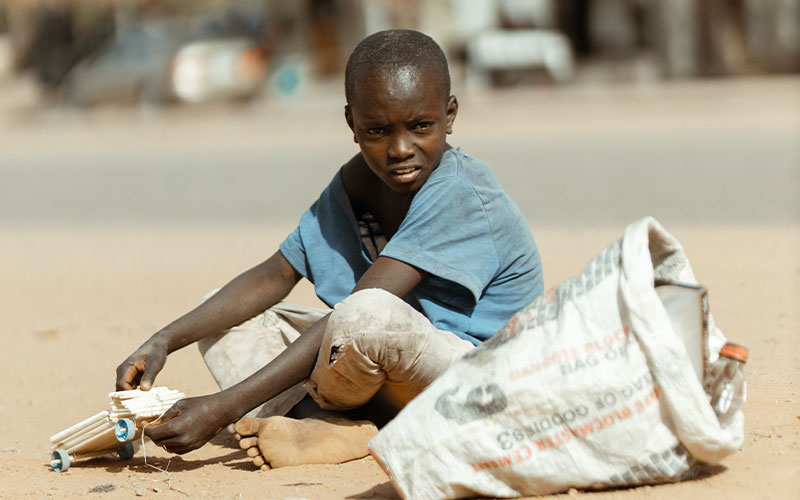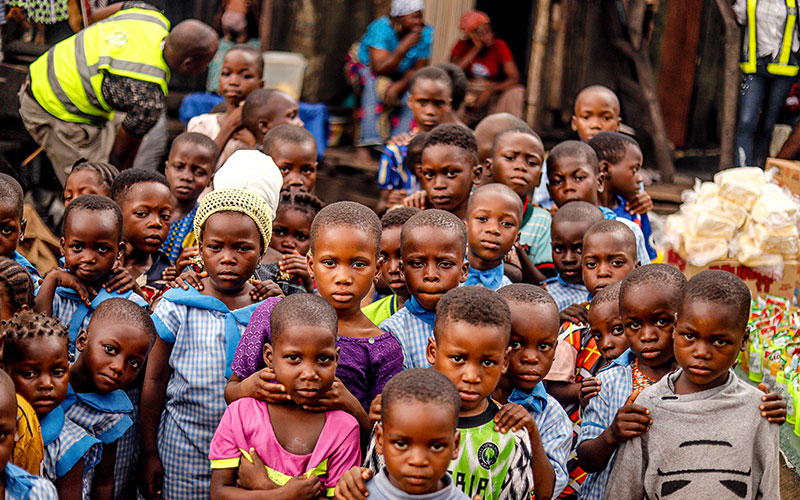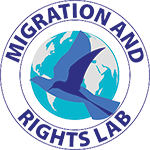Our Work
The Migration and Rights Lab (MaRL) offers comprehensive services to support the rights and well-being of migrants, refugees, children, and marginalised communities. Through research-based advocacy and community-focused interventions, MaRL encourages safe and orderly migration, fights against human trafficking, and aids the integration of vulnerable groups. We incorporate gender and social inclusion into our programmes, tackling structural inequalities and empowering those in need. Additionally, MaRL prioritises health initiatives, including HIV/AIDS prevention, mental health support, and women's health and wellness. We also emphasise entrepreneurial development and examine the links between migration, business growth, and climate change adaptation, aiming to create sustainable livelihoods for communities. By utilising evidence-based approaches and working with governments, civil society, and private sector organisations, we deliver innovative solutions that strengthen resilience, support integration, and deliver meaningful community outcomes.
Our Services
We are recognised for our community-based and rights-driven approaches, as well as our dedication to human-centred development. Our work integrates research, direct programming, and advocacy to enhance accountability, minimise vulnerabilities, and improve service delivery for those most at risk.

Migration Governance
Our migration governance program works collaboratively with youth, community members, migrants, protection actors, employment bodies, workers’ organizations, governments, think tanks, academia, human rights experts, business networks, and the private sector. We focus on migration within or across borders and the increased vulnerability to abuse and exploitation that migrants may face whether they are moving regularly, irregularly, or internally. Within the context of migration, the focus on vulnerabilities to exploitation can extend to left-behind children and spouses by migrants in origin, transit, and in destination countries. Migrants face an increased vulnerability to a denial of social protection services such as health, education, and livelihood. Migrants in new environments are also vulnerable to human trafficking and associated forms of abuse and exploitation. Some of our interventions are focused around:
- Strengthening Safe Migration Pathways through Effective Policy and Community Engagement.
- Strengthening Migrant Integration and Reintegration through Community Engagement and Social Cohesion.
- Preventing, Protecting and Supporting Children on the Move.

Anti-Human Trafficking and Forced Labor
Our collaborative programs on Human trafficking, Smuggling, and forced labour ensure community-strengthening initiatives to prevent human trafficking and smuggling, human rights due diligence in the supply chain, address the vulnerabilities of families to forced labour, and engage government actors on policies that reinforce these practices. Forced labour and modern slavery continue to be endemic issues in global production and manufacturing, especially in low-wage and labour-intensive industries requiring innovative community-led approaches and linkages with private corporations and governments.
Some of our interventions are focused around:
- Awareness raising on human trafficking and forced labour indicators
- Capacity building on human trafficking and forced labour
- Remediation services including identification, removal, referral remediation
- Facilitating human rights and environmental due diligence in the supply chain

Rehabilitation Centre
MRL operates a temporary rehabilitation center providing shelter supportive services: love; counseling; legal aid; small assistance grants; formal preparatory education; vocational skills training; rehabilitation resettlement for survivors of irregular migration, forced labor and other forms of exploitation. Our experienced qualified professional staff provides gender-sensitive, victim-centered, trauma-informed appropriate cultural physical psychological care for people in the center.

Community-Led Program Cycle Development
We design, implement, and manage rights-based, gender-sensitive, community, and national-level programs within MRL. Our community-focused programs cut across multiple sectors based on the experiences and expertise of our team. These programs are aimed at upholding the rule of law and community development along the 4 P’s principle (Prevention, Protection, Prosecution and Partnership). Our work in this area is interlinked with our other services such as research monitoring evaluation of forced labour migration.
Areas of intervention include:
- Gender Equality and Social Inclusion.
- Climate Change Adaptation.
- Financial and Digital inclusion (Community Savings Loans Cooperatives, small grants).
- Entrepreneurial and Livelihood development (Vocational Skills development, business management).
- Promoting the health of vulnerable populations (HIV/AIDS Prevention and Treatment, Mental Health Support and Holistic Health Services).

Research, Monitoring, Evaluation and Learning
As a participatory development-oriented organization we undertake research, monitoring, and evaluation on a wide range of socioeconomic themes relevant to the rule of law, community development, and poverty reduction, to understand the dynamics of these issues, and offer remedial alternative courses of action. We have a proven track record undertaking research with varied methodologies like participatory rural appraisal, mixed methods, qualitative, quantitative, and impact evaluations across several sectors.
To this end, we undertake:
- Public policy analysis
- Monitoring evaluation systems tools
- Baseline midline end-line studies
- Impact assessment

Organisation Development
We help strengthen internal mechanisms and controls and build the staff capacity of organizations to enable them to function at optimal levels and improve efficiency, transparency, and accountability in a manner that best serves constituents and stakeholders.
Our intervention includes:
- Developing training manuals and curriculums
- Facilitation capacity-building training for community leadership, civil society organizations, and government agencies stakeholders
- Develop organisational systems, and structures including strategic plans
- Fundraising and proposal development

Internships
MRL is committed to the human capital development of students and other professionals with interest in human rights, advocacy, community development, migration management, human trafficking, research, and forced labour. MRL partners with academic institutions and accepts individual applications for placements in experiential learning.
